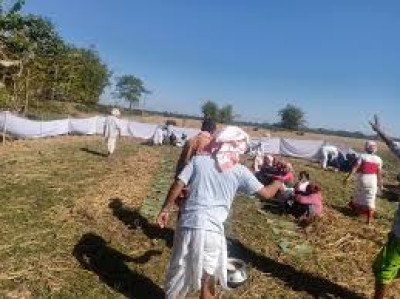Detailed Notes
Bisu Festival of the Deori community
Deo Puja of the Deori community
The Deo Puja is the most sacred ritual of the Deori community, held on the third Wednesday after the Deori Bihu begins. It involves the sacrifice of goats, pigeons, and chickens as offerings to their deities. The entire ceremony is led by the Bor Deori (chief priest), and the success of the sacrifices is considered a divine sign for community well-being. The event reinforces the tribe’s unity and devotion to ancestral gods.
Sawania Puja of the Deori community
The Sawania Puja, observed during the month of Sawun (July–August), marks the closing of the Thanghar (village prayer house) until the Magh month. A goat is sacrificed during this ceremony, and the ritual symbolizes purification and rest for the spiritual space. It’s also known as Cipere Giduwa Puja, meaning “closing of the doors,” indicating a sacred pause before the next agricultural cycle begins.
Cultural Significance of the Deori community
Each of these festivals reflects the Deori people’s deep connection with nature, agriculture, and spirituality. Through music, dance, rituals, and offerings, the Deoris preserve their ancestral identity while spreading messages of unity, purity, and gratitude to nature.
FAQs with Short Answers
-
What is the main festival of the Deori community?The main festival is Bisu, celebrated in mid-April.
-
When is the Bisu Festival held?On the first Wednesday of Bohag, marking the Assamese New Year.
-
Which deity is worshipped during Bisu?The Deoris worship Kundi-Mama (Hara-Gauri) during Bisu.
-
What rituals take place during Bisu?Singing, dancing, animal sacrifices, and community bathing rituals.
-
What is the Deo Puja?It’s the most sacred worship involving sacrifices to village deities.
-
When does Deo Puja occur?On the third Wednesday after Deori Bihu begins.
-
What is offered during Deo Puja?Goats, pigeons, and chickens are offered in sacrifice.
-
What is Sawania Puja?A ritual in Sawun month, marking the closing of the Thanghar until Magh.
-
Why are Wednesdays important in Deori culture?They are considered auspicious days for worship and celebration.
-
How do these festivals preserve Deori culture?By maintaining rituals, songs, and community unity, passed down generations.
